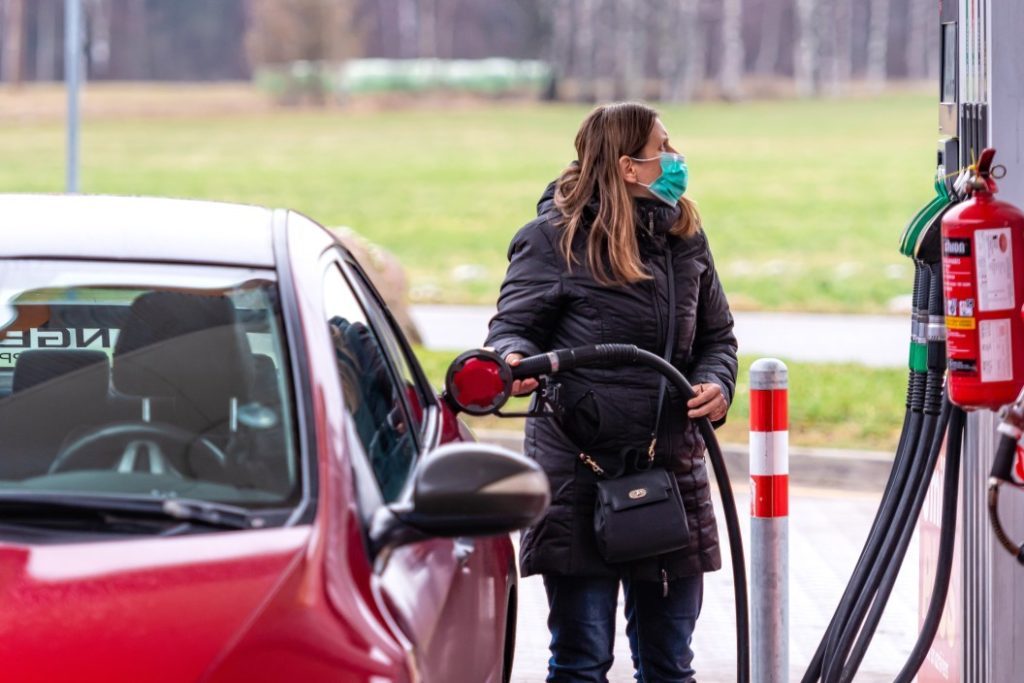The (popular) plan is to reduce petrol and diesel costs by 5p per litre.
The UK is in the midst of a cost-of-living crisis. The inflation rate, which shows how much more expensive things are than they were a year before, hit 6.2 percent in February 2022, the highest it’s been in thirty years. (For comparison, in February 2021 the inflation rate was 0.4 percent.) And the inflation rate is just an average of all item prices. Some essential items have had price jumps of much more than 6 percent.
In particular, the cost of energy is skyrocketing. That will make it substantially more expensive for Brits to light and heat their homes, and also to drive their cars. To try and help make the latter a little less painful, UK Chancellor Rishi Sunak has decided to cut the tax his government charges on fuel by 9 percent.
It’s easy to see why the government is bothered about fuel prices. Brits rely on their cars to do some pretty essential economic stuff; going to work, taking kids to school, picking up groceries and other shopping, visiting loved ones and so on. Many people also can’t access alternative transportation for these needs, especially if they live outside city centres and/or have mobility problems and other disabilities.
That means when petrol prices rise, these motorists have no choice but to swallow it, which often requires cutting back on spending elsewhere. The lower down the income scale one is, the more substantial these cuts are likely to be, and the more likely they are to involve essentials like food, rent or household bills.
Sunak’s fuel tax cut is popular with the British public - 7 in 10 adults support it. But it has been roundly criticised by many economists, environmentalists, and policy experts, all of whom think it’s going to make a bad situation worse.
There are a few reasons why. The first argument is that car fuel contributes to climate change, so if higher prices make people use less of it, that’s a good thing. Some environmentalists have pointed out that the changes the Covid pandemic wrought on society massively reduced the number of essential car trips people need (because many more people work remotely at least some of the time and get their shopping delivered etc.) They’ve also said the public’s dislike of fuel price rises will make it hard for the government to ever reverse the cut. That might slow the necessary long-term transition to electric cars and other low-carbon vehicles because people have less financial incentive to make the switch.
The second argument some make is that the fuel tax cut puts money in the pockets of the wrong people. One such person is Vladamir Putin, who rules a country that both invades its neighbours and produces much of Europe’s oil and gas. If high prices force people to drive less, then the UK needs to buy less Russian fuel, and Russia has less leverage in its quest to get the sanctions imposed on it by countries like the UK dropped.
Another unintended beneficiary may be petrol station owners, who are under no obligation to pass the tax cut on to their customers. (Although as drivers will shop around for the best deal, they do have an incentive to cut their prices to beat out their competition). The AA, a motoring organisation, reckons petrol retailers are keeping about half the fuel duty cut to boost their own revenues.
Even the savings that are going to drivers may mostly be going to the richest ones, because they tend to drive more. The New Economics Foundation reckons the richest fifth of households will get about a third of the total savings from the fuel cut, and the poorest fifth of households just 7 percent.
Read our explainer on: what should be taxed

